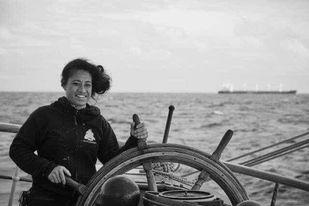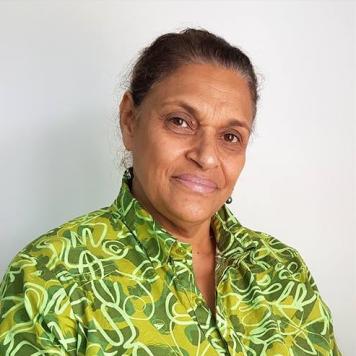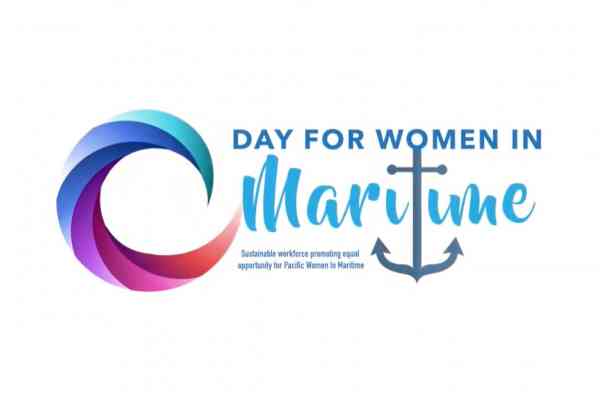(disponible en anglais uniquement)
Navigating through a humanitarian crisis: Vaiufia Makatuu Latu’s Story
The Pacific, a region that is already combating the impact of climate change, is now also facing the brunt of the global COVID-19 pandemic and its ripple effects on the maritime sector. The ‘blue continent’ has always relied on maritime transport and the services offered by the region’s seafarers, but over the last few months this critical sector has come under heavy pressure.
Data shows that the Pacific shipping industry carries more than 90% of world sea trade. For our region, this includes fuel for transportation sector, imported goods, as well as fruits and vegetables that do not grow in the Pacific soil.
This year, the International Maritime Organization (IMO) revealed that, due to COVID restrictions, over 400,000 seafarers (both men and women) are currently stranded on ships and unable to be repatriated to their countries. IMO has declared the situation a humanitarian crisis at sea and stressed the need for urgent action to be taken to safeguard the health and wellbeing of seafarers around the world.
Among the stranded is Ms. Vaiufia Makatuu Latu, a seafarer from Tonga who has been living on her ship, the Bark Europa, since January 2020 due to the COVID-19 pandemic. Vai is a mother and one of four female staff amongst the 10 crew members on board the Bark Europa. She holds the title of a deckhand and is responsible for sail handling, including safety instructions.
This is Vai’s story:
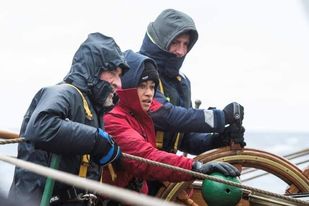
In January this year, we embarked for an expedition to Antarctica, with expedition leaders and scientists to do experiments in Antarctica. We all convened in January for the tour that was supposed to last for a month and then I was supposed to go home for a break. While we were in Antarctica, we heard the bad news that we cannot go back to Buenos Aires, Argentina. Staff and crew members were not allowed to get offboard the ship at any ports.
So, our two options moving forward was to sail with the ship to Netherlands or stay onboard in Buenos Aires in Argentina for winter. So, all of our 18 crew members decided to make the long 82-days sail to Netherlands. This was very sad and very unexpected news and for all of us who could not go home to our family members. It is 8-9 months now away from home and we are still waiting for borders to reopen.
This has really affected me, as I am not able to connect with the people back home, people that you love and usually hangout with. Even on the ship, we have a friendship among the crew, but we cannot hug or hangout with each other like we used to before. We cannot move out of the ship as well, as everything is closing up in Netherlands too now.
My country at the moment has closed its borders and is working really hard to getting its citizens back home. As much as I want to return home, I am coping with the situation, trying to be reasonable with the Government’s efforts. We really want to avoid COVID-19 reaching Tonga, we all know the issues that would erupt. I trust our leaders in Tonga are doing their best and I pray that we all return to our Kingdom of Tonga safely.
Once I understand the extent of my stay in the current situation, then I will reach out to my employer and contacts as well, to register myself in further studies, and I will use this as a coping mechanism to pass time while I wait for my repatriation to Tonga. This October I will be joining an online class that will run till December, something that will keep me going.
Ladies, the seafarer work that we do, it is in our genes gifted to us from our ancestors, there is always a sailor in us regardless of the gender. Believe in what you do, you are an islander. Go on, go strong, our ancestors did it, so we can do it as well.
Update: After being stranded for more than 9 months in Netherlands, Vai is currently on her way home, transiting through New Zealand, back to her Island Kingdom.
This crew change crisis is taking a mental toll on stranded seafarers, with IMO reporting increasing calls about the fatigued status of ship crews, some of whom have been living at sea for as long as 17 months.
In response, IMO has established the Seafarer Crisis Action Team (SCAT) to look into the cases of stranded ship crews and work with other organisations around the globe to find solutions to their plight. SCAT helps individuals contact with national governments and trade unions or directs seafarers towards other support organisations. Seafarers and their relatives can contact the SCAT by sending an email to [email protected].
While this mechanism provides much needed help, the key challenge is convincing Governments to declare Seafarers as ‘Key Workers’ as called for by the IMO and the United Nations Secretary General. By declaring Seafarers as Key Workers, governments will be compelled to provide support, assistance and travel options during the pandemic. The Government of Kiribati has been proactive on this issue and has recognised seafarers as Key Workers; but more governments need to take action.
At the regional level, the Pacific Community (SPC) has recognised the unprecedent global health crisis across all development sectors and is raising awareness around the critical role maritime transport plays, not only for access of goods, but also for basic health services, educational needs and amenities. The disruption is exacerbating the challenges for vulnerable groups such as children, girls and women.
SPC, through its social inclusion and gender work in the maritime transport sector, has ignited work around promoting the role of women through its regional network, the Pacific Women In Maritime Association (PacWIMA). By highlighting the stories, challenges and issues around women in this sector, PacWIMA is hoping to draw particular attention to the female seafarers stranded during this global health crisis.
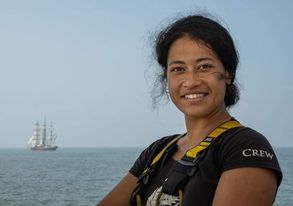
Vai, is a model of Pacific resilience, coping with a challenging situation by trusting the network of women in the maritime sector as well as her employer and fellow crew members. A crucial aspect drawn from this story is the fundamental need of “peoples longing to be with loved ones and families”; this is a basic human right for every individual. If there is small-big lesson gained during this pandemic, it is the reminder for human kindness, care and compassion.
